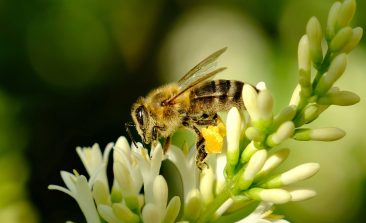Content to: Bees
BEEHAVE: Protecting Honey Bees with Better Understanding
BEEHAVE simulates the development of a honey bee colony - including its nectar and pollen foraging behaviour—under various conditions.
Why Listening to Bees is the Most Important Thing We Can Do
May 20th is World Bee Day, an important day in history: today, back in 1734, Anton Janša, the pioneer of beekeeping, was born. And while he might enjoy people celebrating his big day, it’s unlikely that he’d be happy with how he finds the planet and its bee population some 285 years later.
Are Mobile Phones Killing Off Honey Bees?
Could radiation from mobile phones be causing bees to die off? A group of schoolkids in Germany have carried out an award-winning experiment to find out exactly that.
‘Round the Clock Remote Monitoring of Bees
A Portuguese start-up has developed a smart, innovative system that allows beekeepers to remotely monitor the health of their bee colonies in real time.
A Pollination Highway Bee-comes Reality in Oslo
Environmentalists in Oslo, Norway have set up the world's first 'highway' for bees, encouraging businesses, households and schools to plant bee-friendly plants in open spaces to help bees safely navigate through the city and minimise any harmful impacts that urban settings have on bee populations.
The Power to Save Honey Bees in Everyone’s Hands
We need bees for more than just their honey. Seedbombs initially designed to green abandoned spots in urban areas are now being used as a tactic to save honey bees.
The Plight of the Humble Bee and How it Affects You and Me
Albert Einstein once said,“If the bee disappears from the surface of the earth, man would have no more than four years to live.
Bitter Truth: Biodiversity and The Business of Food
2010 was the International Year of Biodiversity and offered the world the opportunity to reflect on the role of biodiversity in our daily lives – in fact our bodies and our selves.







